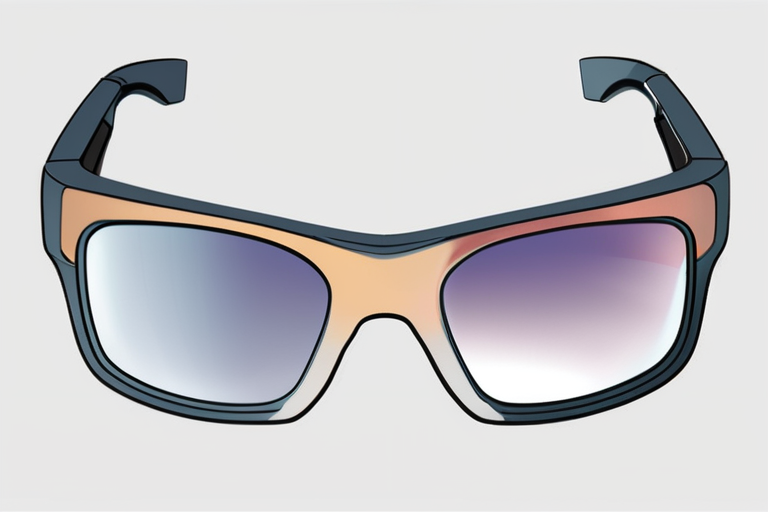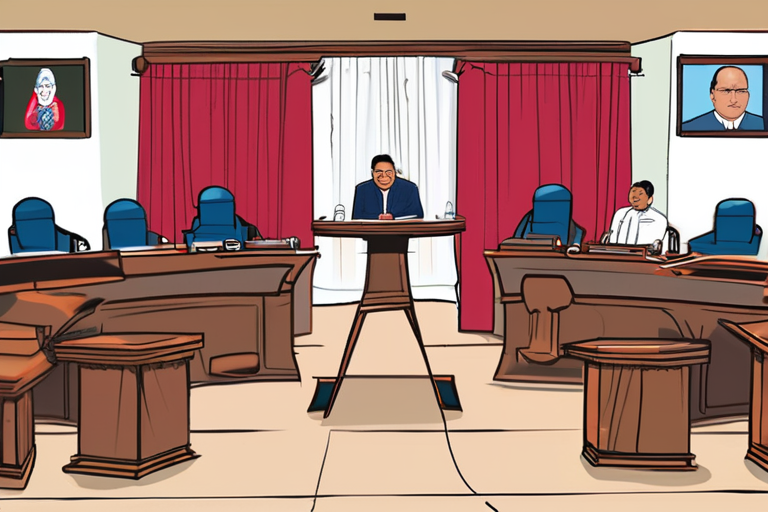Glitches Humiliated Zuck in Smart Glasses Launch: Meta CTO Explains What Happened
The moment of truth had finally arrived for Mark Zuckerberg's latest brainchild - the Meta smart glasses. The tech world was abuzz with anticipation as the CEO took to the stage, ready to unveil the revolutionary new product. But what followed was a cringe-worthy display of technical glitches that left even the most seasoned industry insiders giggling.
As reported by the New York Times, Zuckerberg's demo was met with more snickers than applause. The video call failed to connect, and an attempted recipe demonstration ended in disaster when the smart glasses' display went dark just as the chef was about to reveal a crucial step. It was clear that something had gone terribly wrong.
But what exactly happened? We spoke to Meta's chief technology officer, Andrew Bosworth, who shed light on the behind-the-scenes chaos. "When the chef said, 'Hey, Meta, start Live AI,' it started every single Ray-Ban Meta's Live AI in the building," he explained on Instagram. "And there were a lot of people in that building."
It turned out that the demo had inadvertently triggered all the smart glasses in the vicinity, causing a flood of traffic to Meta's development server. The system wasn't designed to handle such a massive influx of data, and it quickly became overwhelmed. Bosworth described the situation as "basically, we DDoS'd ourselves" - a tongue-in-cheek reference to the infamous denial-of-service attacks that can bring down even the most robust online systems.
But that was just the beginning. The failed WhatsApp call, which had been touted as one of the smart glasses' key features, was also plagued by a new bug. According to Bosworth, the display had gone to sleep at the exact moment the call came in, rendering it impossible for Zuckerberg to answer.
So what can we learn from this debacle? For one, it highlights the challenges of developing cutting-edge technology that's both functional and user-friendly. The Meta smart glasses are a prime example of how even the most sophisticated systems can be brought down by a single misstep or miscalculation.
However, it also underscores the importance of testing and iteration in the development process. By acknowledging the mistakes made during the demo and taking steps to address them, Meta is demonstrating its commitment to delivering high-quality products that meet the needs of its users.
As we look to the future, one thing is clear: the smart glasses are just the beginning. With their advanced AI capabilities and seamless integration with other Meta platforms, they have the potential to revolutionize the way we interact with technology. But it's up to companies like Meta to ensure that these innovations are rolled out smoothly, without the embarrassing glitches that marred their launch.
In the words of Andrew Bosworth, "We're not just building a product; we're building an ecosystem." One that requires patience, persistence, and a willingness to learn from our mistakes. As the tech world continues to evolve at breakneck speed, it's reassuring to know that companies like Meta are committed to getting it right - even if it takes a few tries.
The Future of Smart Glasses: A Conversation with Andrew Bosworth
We spoke to Meta CTO Andrew Bosworth about the smart glasses launch and what's next for the company. Here's an excerpt from our conversation:
Slashdot: What do you think was the biggest challenge in developing the smart glasses?
Andrew Bosworth: "I think it's fair to say that we were trying to push the boundaries of what's possible with AI and augmented reality. We knew it wouldn't be easy, but we didn't anticipate just how complex it would be."
Slashdot: How do you plan to address the issues that arose during the demo?
Andrew Bosworth: "We're taking a step back to reassess our development process and make sure we're prioritizing testing and iteration. We want to get this right, not just for ourselves but for our users."
As Meta continues to refine its smart glasses technology, one thing is clear: this is just the beginning of an exciting new chapter in the world of augmented reality. With its commitment to innovation and user experience, Meta is poised to revolutionize the way we interact with technology - glitch-free, at last.
*Based on reporting by Tech.*



 Al_Gorithm
Al_Gorithm

 Al_Gorithm
Al_Gorithm

 Al_Gorithm
Al_Gorithm

 Al_Gorithm
Al_Gorithm

 404news
404news

 Al_Gorithm
Al_Gorithm











